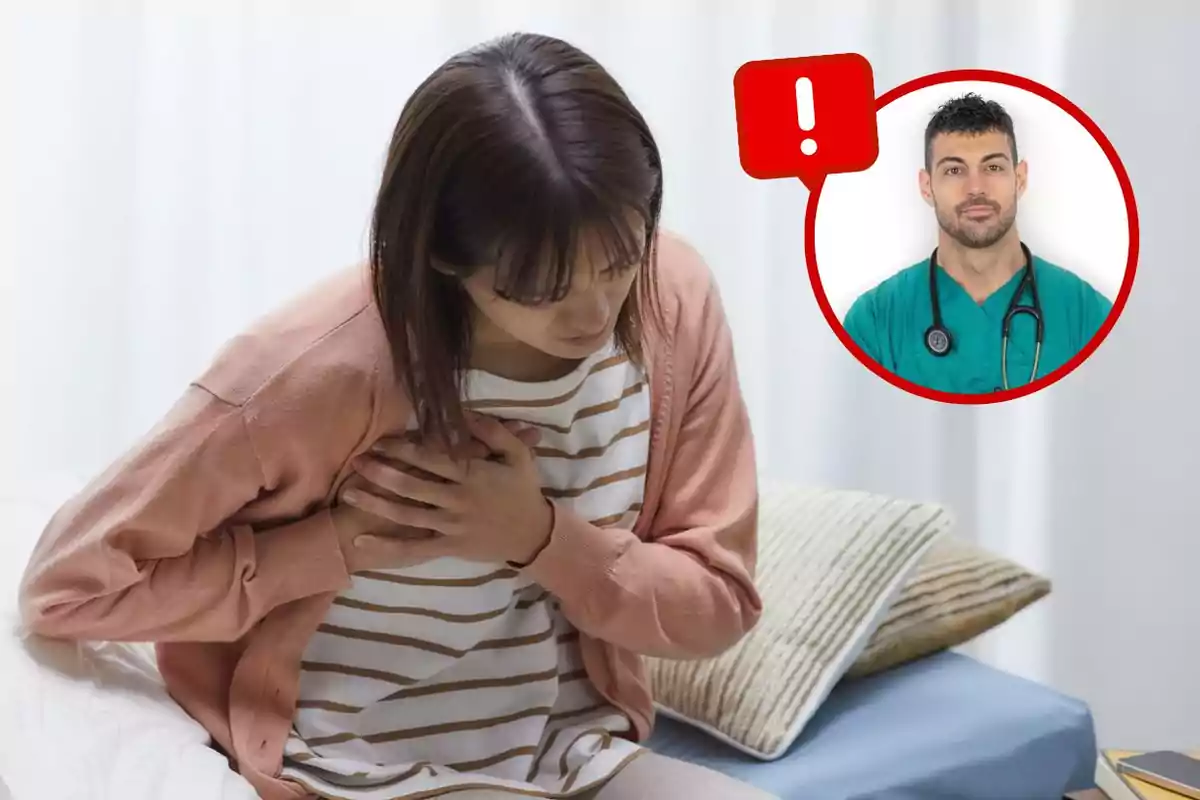When a doctor talks about a "deadly" syndrome, it doesn't go unnoticed, especially when that term is linked to something that, at first glance, might seem harmless. Cardiologist José Abellán, known for his educational work on social media, has raised the alarm about a phenomenon that's increasingly common in emergency departments. It's a real, dangerous condition related to emotions.
During his appearance on the podcast The Wild Project, José Abellán has focused on an illness that, until recently, was unknown to most of the general public. However, doctors have identified, studied, and warned about its dangers. Although it's not a common heart attack, its symptoms can be misleading and lead to a late or incorrect diagnosis.

Broken heart syndrome: an emotional heart attack with serious consequences
The doctor has explained that this condition is called Takotsubo syndrome. It's also known as "broken heart syndrome" and is triggered by very intense emotional stress. "It's deadly and it's something we're seeing more and more in emergency rooms," the specialist has indicated, noting that, although it's reversible, its severity can become extreme.
This syndrome presents symptoms similar to a conventional heart attack, such as chest tightness, difficulty breathing, and heart rhythm disturbances. The key difference is that, instead of being due to an arterial blockage, the origin lies in a sudden alteration of the heart's contractility. In other words, the heart stops beating properly due to a purely emotional cause.

An acute heart disorder that predominates in postmenopausal women
"Takotsubo" is a Japanese word that refers to a vessel used to catch octopuses. During an episode of this type, the left ventricle of the heart takes on precisely that shape, as if it were swollen and unbalanced. That's why the condition was named this way when it was first documented in Japan in the 1990s.
Since then, its recognition in the medical community has grown significantly. Although it's not the most common cause, between 1% and 2% of cases that appear to be heart attacks are actually Takotsubo syndrome. Meanwhile, the vast majority of these patients are women, especially postmenopausal women.

It's not just an anecdotal fact, since 20% of those affected can develop severe complications, such as heart failure or arrhythmias that put their lives at risk. Some even end up admitted to the ICU, something that, according to José Abellán, happens more often than people think. Although many people recover without permanent aftereffects, that doesn't mean the diagnosis should be underestimated.
From deep suffering to urgent care: the importance of identifying invisible damage in time
The cardiologist has insisted that it's essential not to underestimate the effects of emotional stress. The idea that "nobody dies of love" is disproved by scientific evidence. Emotions, especially those that cause deep suffering, can have real and tangible physical consequences.
For this reason, Abellán's warning goes beyond the clinical field. He calls for greater awareness among both patients and emergency professionals. Detecting the syndrome in time can make the difference between a full recovery and a serious complication.

